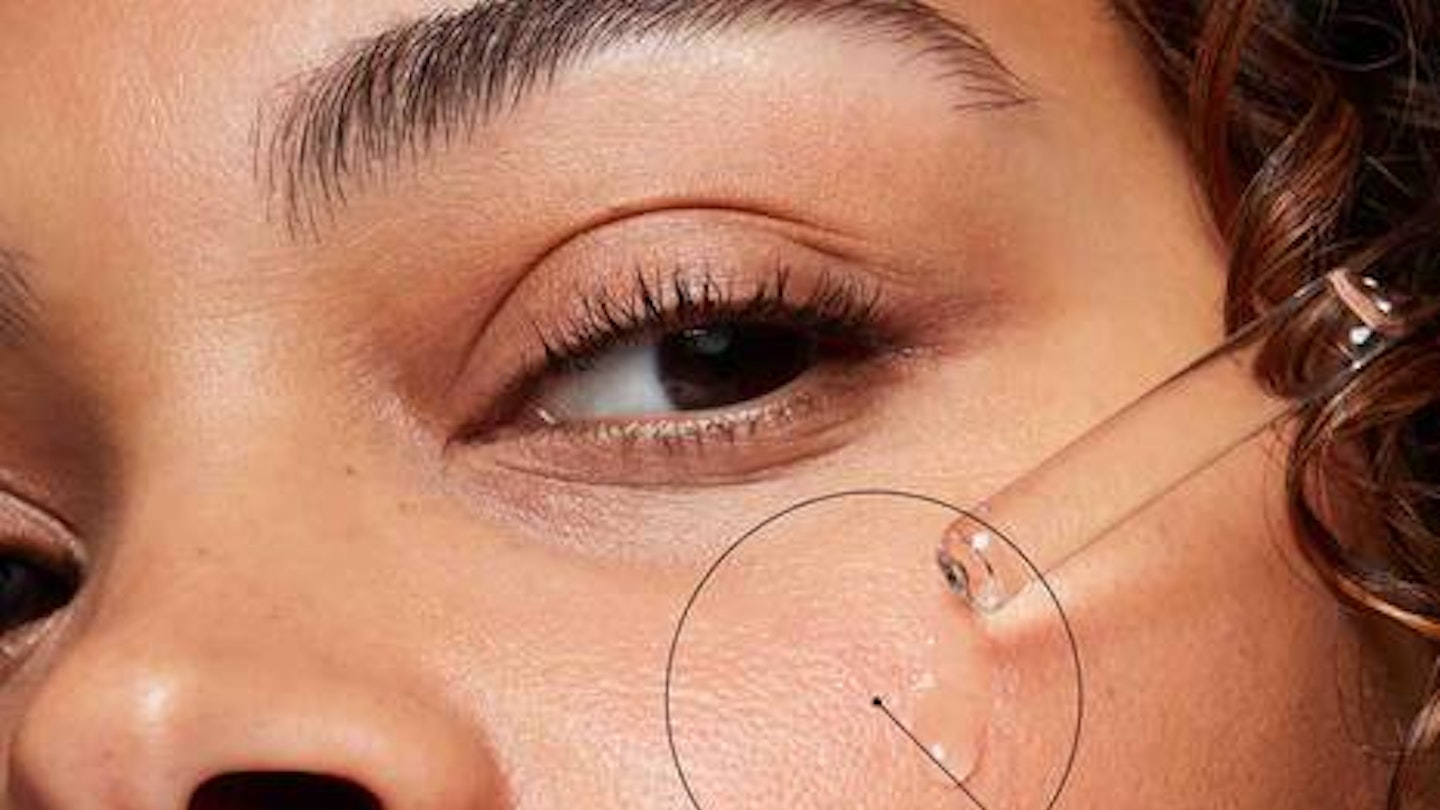If there's one ingredient that's hot property right now (and has been for a while) it's Hyaluronic Acid. Forming part of the skin's natural framework, Hyaluronic Acid is a large sugar molecule that lives in the deeper layers of our dermis (that's technical talk for your, erm, skin). You've probably noticed many a moisturiser and serum claiming to be full of the stuff, or nutritionists waxing lyrical about foods high in it. But how exactly doesHyaluronic Acid benefit our skin?
To find out everything there is to know about this buzz-worthy ingredient, we've quizzed skincare experts Paula Begoun, founder of Paula's Choice and Linda Blahr, Educational and Science Manager from Skinceuticals.
What does Hyaluronic Acid do to your skin?
Having the unique ability to attract and hold up to 10,000 times its molecular weight in water, it is key to keeping our skin soft, plump and hydrated.
This highly active molecule is no one trick pony, and the benefits go way beyond just hydration, as Begoun explains, 'hyaluronic acid does more than keeping the skin hydrated, it has excellent antioxidant abilities and is a natural anti-inflammatory.'
Do Hyaluronic Acid creams and serums work?
A popular constituent in skincare, Hyaluronic Acid has a gel-like texture that can be found in serums and creams and can be topically applied to your skin for an instant shot of hydration or used in injectables such as fillers.
'When used in skincare, the goal of this active is to work on the superficial layers of the skin where moisture is lacking,' explains Blahr. 'It protects it against dehydration and will also help to smooth over fine lines and give an immediate plumping effect.'
Why celebrities like Hailey Bieber lover Hyaluronic Acid
There is no denying the universal love this ingredient receives from skincare experts and celebrities alike. Most recently, it was Hailey Beiber who spotlit its benefits. Taking to Instagram and YouTube, the model explains, why the ingredient is one of her favourites and how it's been incorporated into her own beauty range Rhode.
'It's beneficial for hydration, barrier repair and its anti-ageing - giving you that bouncy pump dewy looking skin,' she says. Hailey also notes that her skincare line specifically includes other emollients that help to support the function of Hyaluronic acid. As for her best tip when using the staple ingredient? 'Don't look for products that have too high of a concentration of Hyaluronic Acid because it can actually have the opposite effect on your skin, and can dry it out and draw moisture out if the skin.'
Who can use Hyaluronic Acid?
'Hyaluronic acid can benefit all skin types,' says Begoun, 'including blemish-prone, sensitive and rosacea-affected skin. This is because of its smart hydrating properties, barrier stability ability, and antioxidant effects. '
Just choose your specific formula and texture based on your skin type. Begoun advises:
• Oily to combination skin: use serums or gels.
• Combination to slightly dry skin: try serums or lotions.
• Dry skin: opt for creams or rich lotions.
Is it ever bad to use Hyaluronic Acid?
There’s no downside to Hyaluronic Acid, but Begoun does suggest that 'If you are in an arid, desert-dry climate, or on a plane, be aware that Hyaluronic Acid will pull moisture from the lower layers of skin if it’s not naturally present in the air around you. To keep this from happening, “seal” your Hyaluronic Acid product with an emollient moisturiser or facial oil blend. This way, the skin’s uppermost layers gain the benefits of Hyaluronic Acid without pulling vital hydration from the lower layers.'
What is the best Hyaluronic Acid serum or cream?
There are so many creams and serums on the market, so how do we know which ones to choose? Blahr advises, 'In my experience, the best ones will feel smooth, light and not tacky. It should absorb easily into the skin, but still feel like you have a protective light film, and it definitely shouldn’t feel greasy.'
What's the deal with injectable Hyaluronic Acid?
Aside from topical formulations such as serums and creams, Hyaluronic Acid is used in a number of injectable treatments performed in clinics by aestheticians. We caught with Dr Ron Moy, an American dermatologist and Senior Vice President of the Skin Cancer Foundation to explain how injectable Hyaluronic Acid works and the results it gives.
'As a cream it is really just a moisturiser and humectant rather than a wrinkle fighter. As an injectable, it works to soften wrinkles and give volume by plumping the skin,' explains Dr Moy. 'When you have an Hyaluronic Acid injection, the injection stretches the skin, and your fibroblasts produce more collagen. This results in more volume. It lasts for about six months.'
Is Hyaluronic Acid found in any foods?
'Hyaluronic Acid is found in foods such as leafy greens, root vegetables and soy products. While it's unclear how Hyaluronic Acid is lost in the digestion process, it never hurts to eat leafy greens etc anyway, as a diet high in fruits and vegetables can help your body continue to produce protective agents, like Hyaluronic and DNA repair enzymes naturally.'
SHOP: The best Hyaluronic Acid serums and creams
This booster serum from Simple is a beauty all rounder - it makes light work of locking in moisture, improving texture, reducing fine lines, and relieving irritation.
Rachael Martin beauty editor says: 'Hyaluronic acid is well known for its ability to hydrate and plump, so it's no wonder Simple put a potent dose of the stuff in this serum. Just a small amount pressed into freshly cleansed skin is enough to plump and hydrate. I saw results within three weeks - the fine, crepey lines around my eyes were decidedly softer and more blurred. Stick to it, and reap the rewards.'
Pros
- Feels lightweight
- Tested by dermatologists
- Suited to sensitive skin
Cons
- Dropper can be temperamental at times
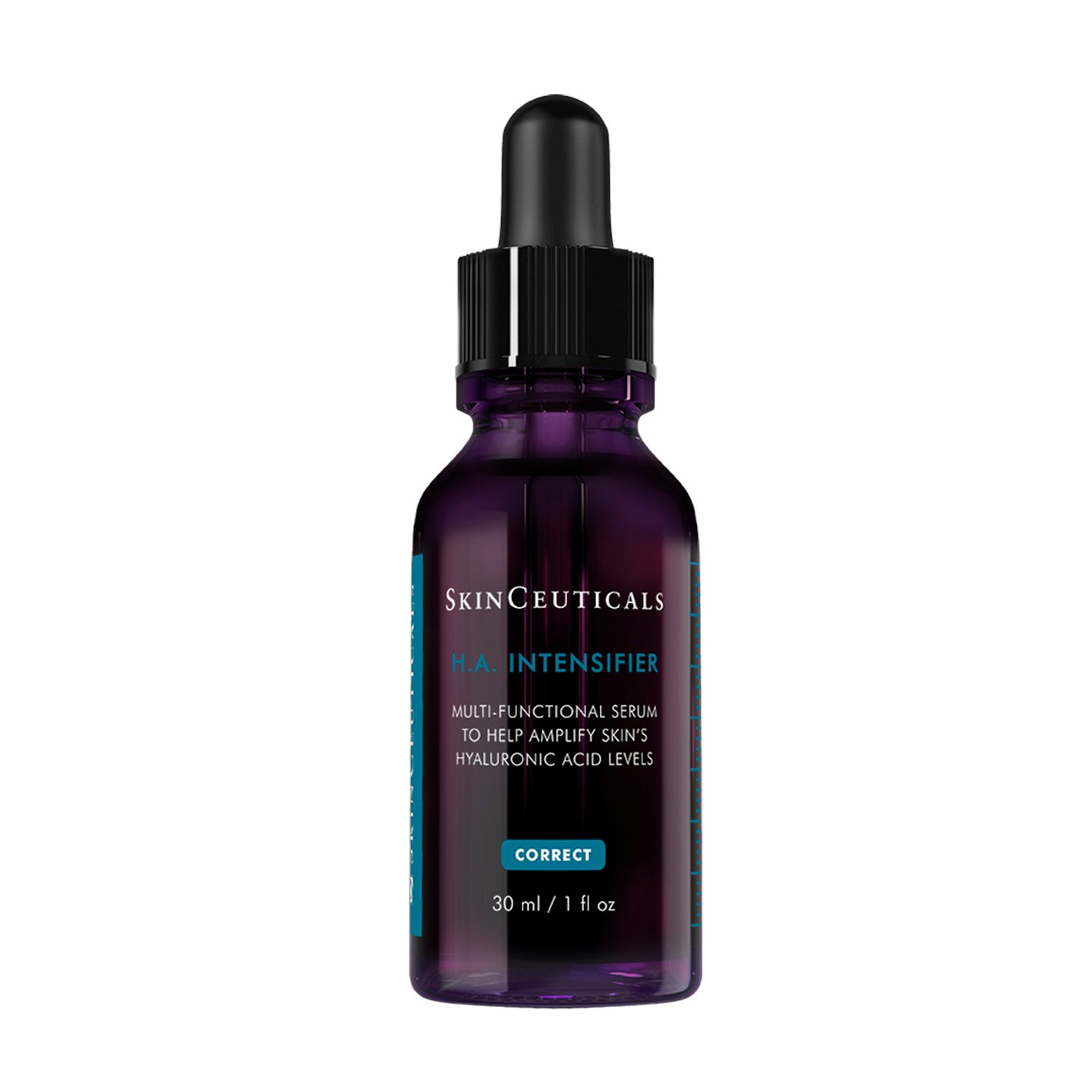
www.skinceuticals.co.uk
Replenish your complexion with the SkinCeuticals H.A. Intensifier; a corrective, multi-functional serum infused with a high concentration of Pure Hyaluronic Acid to firm and plump skin.
**
One trusted reviewer said**: 'The Skinceuticals H.A. Intensifier is one of my favourite serums! It contains a high concentration of hyaluronic acid, as well as purple rice extract. These ingredients among others make my skin more plump, elastic and firm. It is a lovely serum to use, which absorbs very quickly and leaves my skin feeling silky smooth and hydrated! Love this serum.'
Pros
- Long lasting hydration
- Unique serum-gel texture which is super smooth.
- Paraben- and dye-free, ideal for all skin types.
- Can be used as home care after dermal fillers consult - physician for individual regimen recommendations.
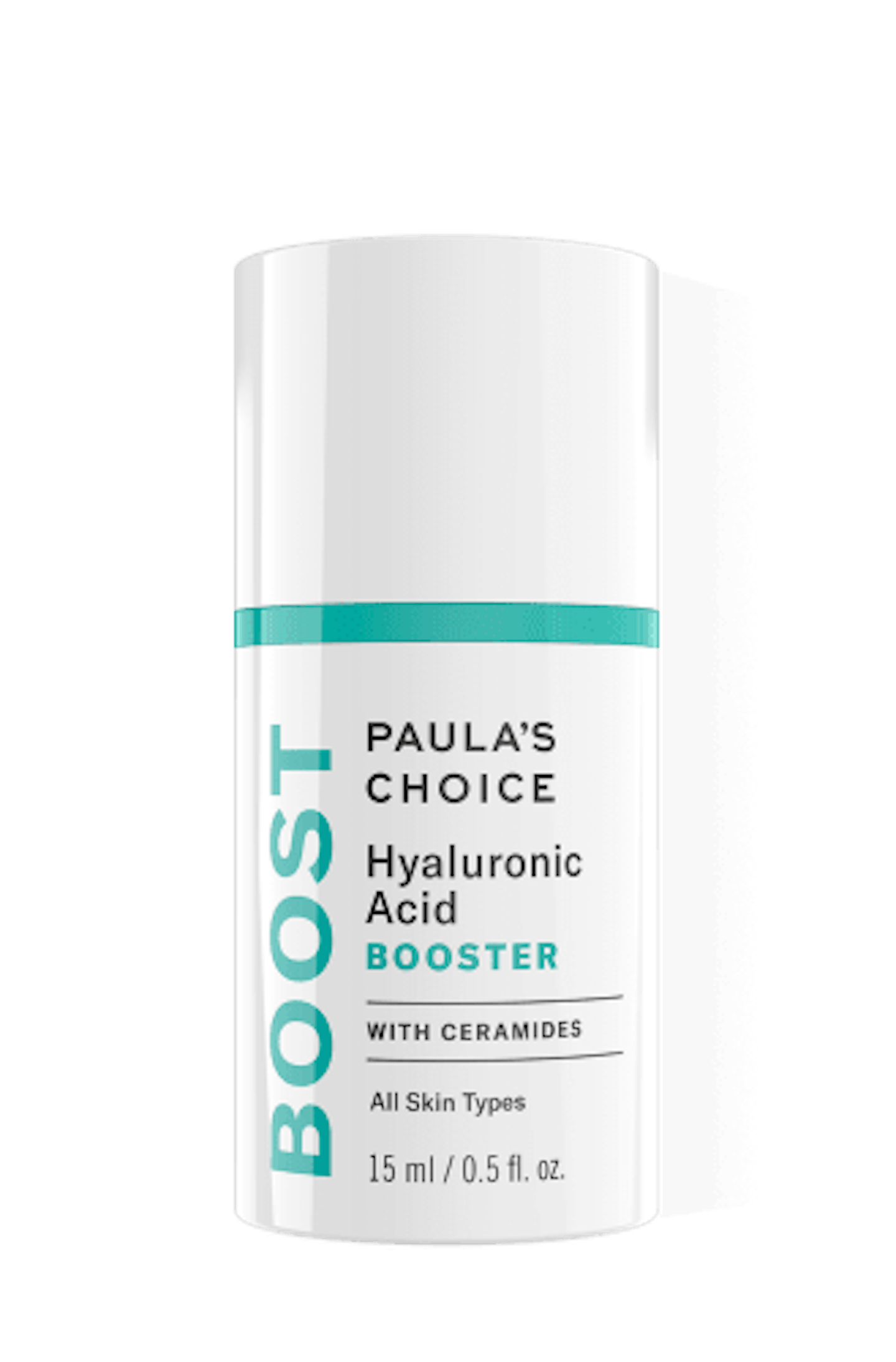
www.paulaschoice.co.uk
This hyaluronic acid booster contains restorative ingredients like ceramides to immediately hydrate skin and lock in moisture. From the very first use, the liquid-gel texture leaves skin visibly softer, smoother and younger-looking.
One trusted reviewer said: 'Layered underneath your chosen moisturiser, this silky serum will give an intense boost of hydration keeping your skin satin soft all day long.'
Pros
- Ceramides
- Panthenol (Vitamin B5)
Cons
- If you use too much it might feel sticky.
- Coloured bottle, hard to see what is left.
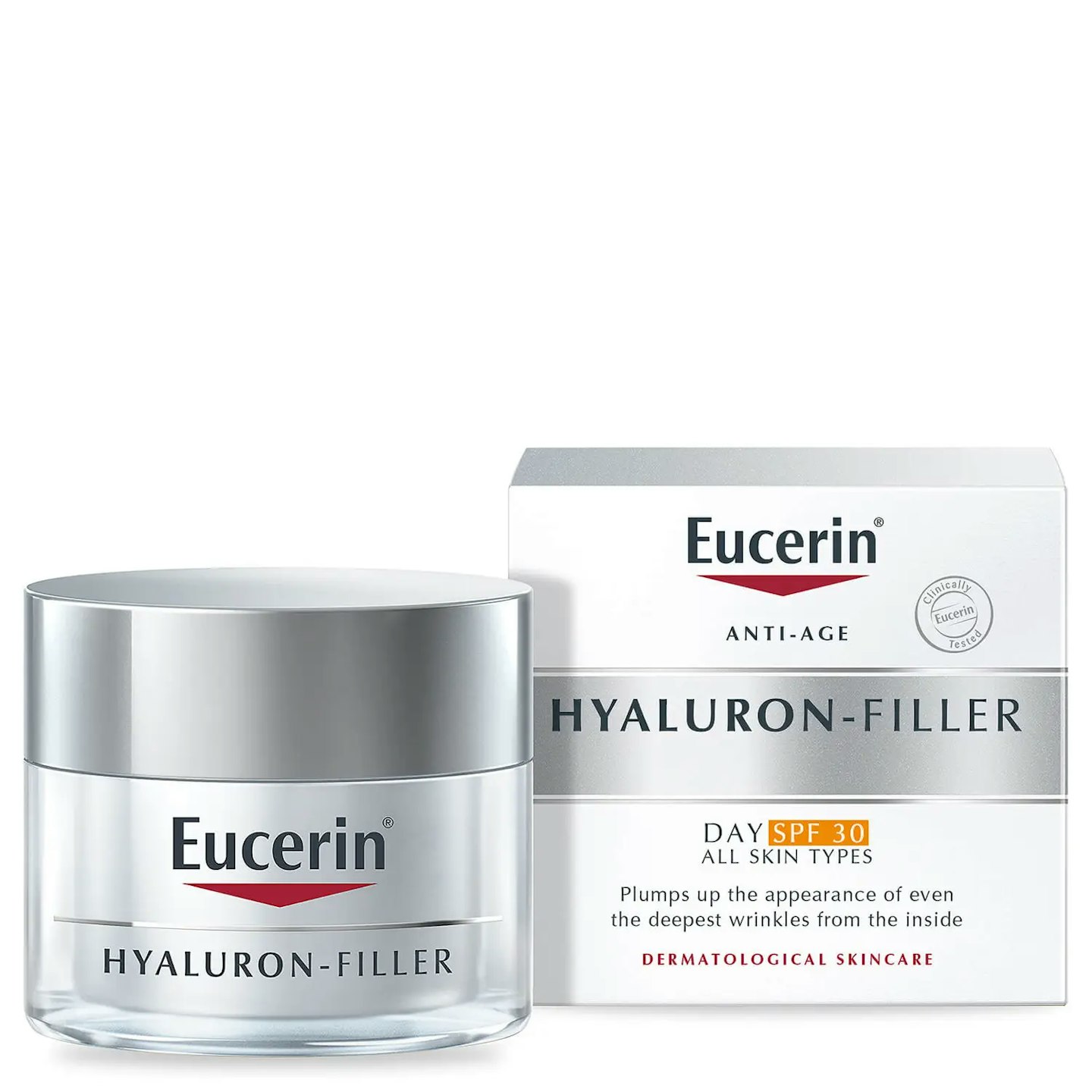
www.lookfantastic.com
Using an innovative blend of Hyaluronic Acid and Glycine Saponin, the Eucerin Hyaluron-Filler day cream delivers a targeted approach to visibly plumping even deep wrinkles.
One trusted reviewer said: 'Love love this cream. Only need a small amount . Feels lovely on the skin. Best I used so far and believe me I have tried alot. Good hydration and does not irritate my red areas on my face.'
Pros
- SPF30
- Glycine Saponin
Cons
- Some find the perfumed fragrance too strong.
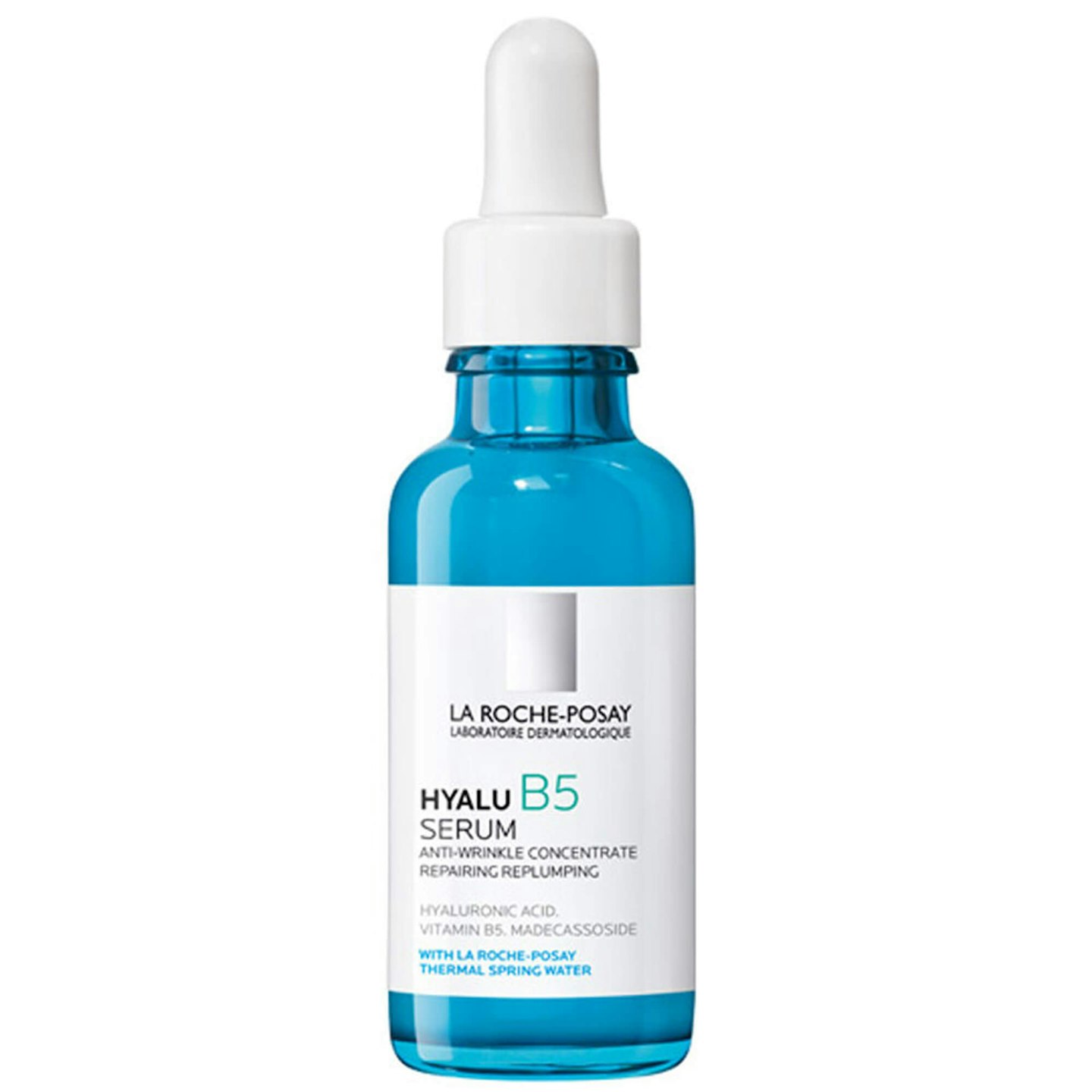
www.boots.com
Our beauty writer said: 'Immediately after application of this Hyaluronic Acid Serum, skin recovers bounce, suppleness and a radiant complexion. I simply love it'.
Pros
- Vitamin B5
- Madecassoside
- 9/10 dermatologists would recommend La Roche-Posay for sensitive skin.
- Recommended for use as part of the optimum anti-aging regime as agreed by our top UK dermatologists.
Cons
- Thick product which some don't like.
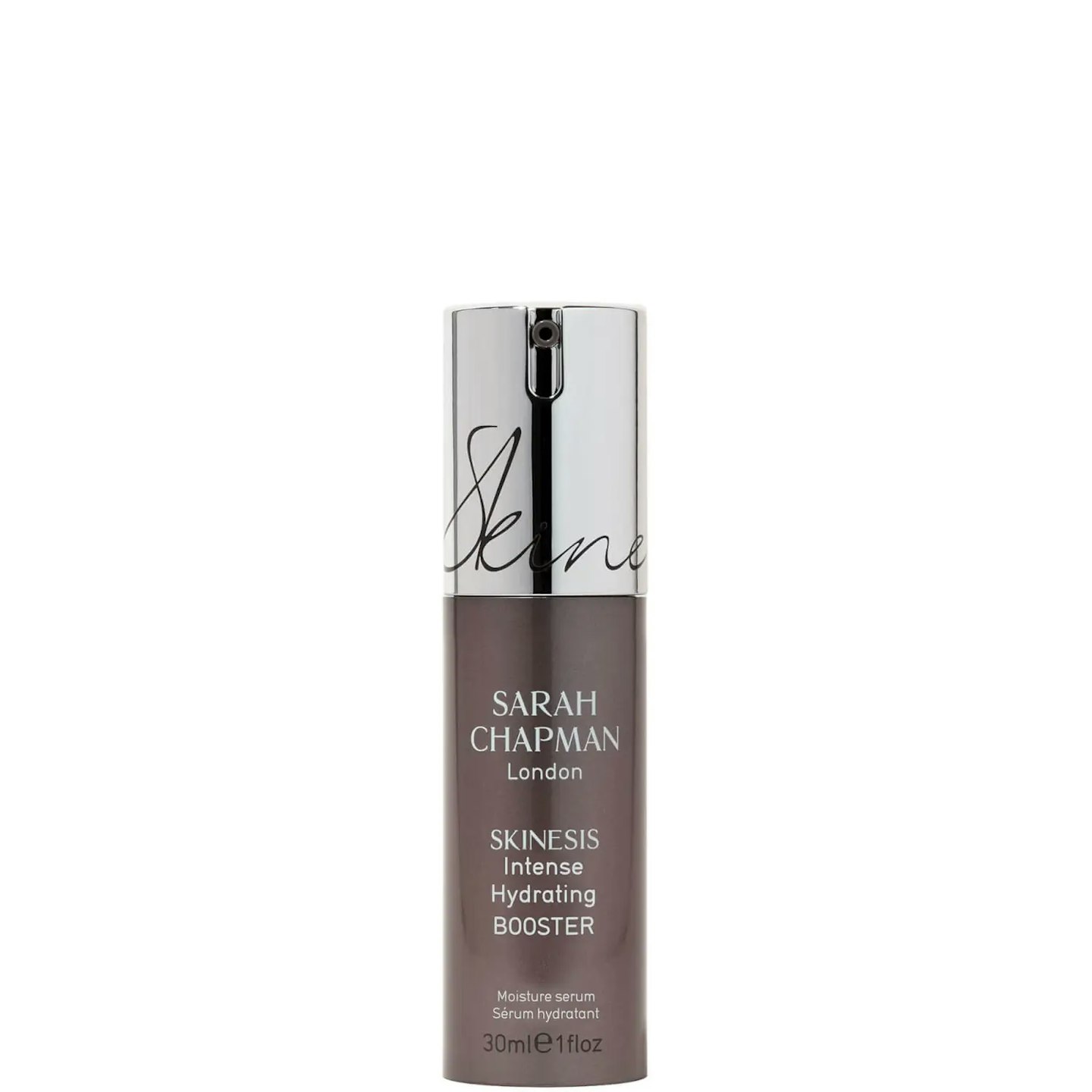
www.lookfantastic.com
Supported by soothing rose water, the serum seeks to leave skin with the brand’s coveted ‘Skinesis glow’.
One trusted reviewer said:'This is the first thing I put on my skin every day and night after cleansing, as it gives a surge of moisture and provides an excellent base to then layer on a serum and moisturiser. It is expensive for what it is, but I still consider it a must-have.'
Pros
- Rose water
- Bioecolia®
- Plerasan® Beta Glucan
- Alistin P5®
